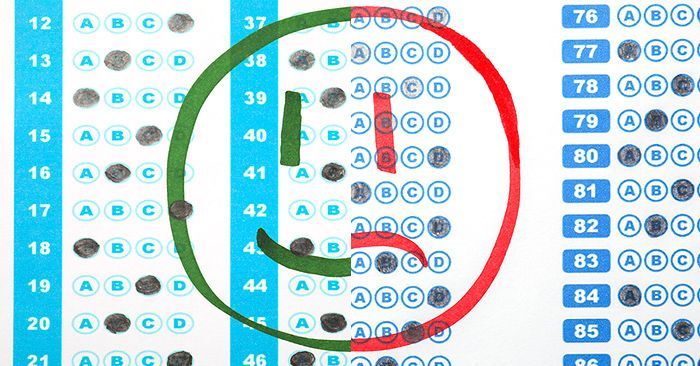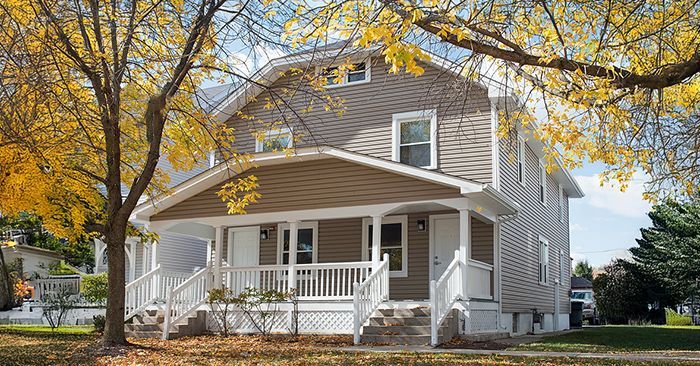Quiz: Are You Ready to Be a Better Homebuyer than Your Competition?

You have to go to school and pass a real estate exam in order to become a real estate agent to help people buy a house, but you don’t need to do either of those things as a home buyer. All you have to do is rely on the knowledge and experience of your agent, and you’ll be fine.
However, your agent can be a lot more effective and help you get better results if you know a few things ahead of time! Some of the “right” things you should do are probably different than what you might think is the “right” thing to do.
Here’s a quick quiz to see how savvy you are without even going to real estate school or spending years in the field! The answers will be at the bottom…but no peeking!
(Don’t sweat it if you get some answers wrong on this quiz; even getting an answer wrong will teach you something. It’s better to learn from mistakes now than to make them when you’re in the process of buying a house!)
- True or false: You need a 20% down payment to buy a home.
- True or false: You don’t need perfect credit to buy a house.
- When you want to see inside a house you should
a) Call the listing agent to see the house.
b) Knock on the door and see if the owner can show you around.
c) Use the virtual tour and submit an offer.
d) Have a dedicated buyer’s agent you’re working with schedule a day and time to show you the house. - When should you get pre-approved for a mortgage?
a) Before you even start looking at houses.
b) Once you find a house you want to make an offer on.
c) Never; it’s not necessary.
d) After your agent has asked you to do so for the 11th time. - Which of the following shouldn’t you go out and buy before your mortgage is approved and you’ve closed on your new home?
a) Groceries.
b) A new car.
c) A nice gift for the agent who is helping you buy a house.
d) A bottle of champagne to pop open on the day of your closing. - How long should you wait to go see a house once it is listed?
a) Go as soon as you and your agent can possibly go to see the house.
b) Wait until there is an open house.
c) Give it a few weeks so the owner doesn’t think you’re anxious, excited, or even all that interested in the house, so you have more leverage to negotiate.
d) Wait until they reduce the price at least once. - Once you find a house you like, which of the following should you do?
a) Sleep on it, and give it some thought before rushing in with an offer.
b) Keep looking at every house on the market until you’ve seen them all. Then wait a couple of weeks to see if any more come on. If it’s still on the market, then you can make an offer.
c) Don’t wait; make an offer on the house right away.
d) Check your horoscope to see if it’s a good time for you to make an offer. - Your home inspection can be done by:
a) A friend or relative who is a contractor, or has at least bought two homes in their life.
b) You and your agent, using a checklist of things to look for.
c) A licensed home inspector.
d) A real estate appraiser chosen by your mortgage lender - Which of the following things found during a home inspection should you ask the homeowner to address?
a) Carpet that has pet stains.
b) A furnace that isn’t working
c) Squeaky door hinges
d) An old stove that is working fine, but probably going to need to be replaced in a few years. - What is the purpose of the appraisal?
a) So you can see how accurate the Zestimate for the house actually was.
b) To make sure the house is in good condition and everything is working properly.
c) For the seller to figure out if your offer is acceptable or not.
d) For the lender to make sure the house is worth what you’re paying for it, before agreeing to lend you the money to buy it.
OK, let’s see how you did on the quiz! Here are the correct answers:
- False. You don’t need a 20% down payment in order to buy a house. There are mortgages that require as little as 3.5% down!
- True. While having excellent credit is helpful, there are plenty of mortgage programs for people with credit scores that aren’t perfect.
- d) Have a dedicated buyer’s agent you’re working with schedule a day and time to show you the house. (It’s better to have one dedicated agent representing your interests as a buyer, than it is to call the agent who is listing any house you want to see.)
- a) Before you even start looking at houses. (It helps you know what you can afford so you avoid wasting time and disappointment by looking at houses you can’t buy.)
- b) A new car. (In fact, don’t make any large purchases or take on any new credit until your loan is approved or closed.)
- a) Go as soon as you and your agent can possibly go to see the house. (If it’s a house you’re interested in, there’s bound to be other buyers interested. The quicker you can get there, the better…regardless of whether the market is “hot” or not.)
- c) Don’t wait; make an offer on the house right away. (Refer back to the explanation for #6…)
- c) A licensed home inspector. (Doesn’t matter how many houses someone you know has bought, or how handy they are, only a licensed home inspector should do your home inspection.)
- b) A furnace that isn’t working. (Home inspection requests should be kept to issues that are operational or structural in nature, not cosmetic, minor, or a potential future issue.)
- d) For the lender to make sure the house is worth what you’re paying for it, before agreeing to lend you the money to buy it. (Coincidentally, the appraiser’s value can be as inaccurate as a Zestimate at times, but your agent can help you contest it, or request a second appraisal if it is way off from what you’re paying.)
Share this post




